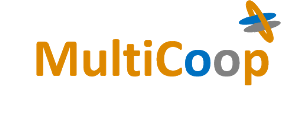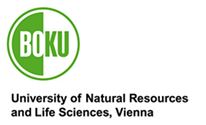 OBJECTIVES
OBJECTIVES
The principal objective of MultiCoop is transfer of competences, techniques and technologies among the three Universities, one from widening country (VSCHT) and two internationally-leading counterparts (QUB and BOKU), resulting in strengthening of overall scientific and innovation capacity in transnational scientific collaboration in food and feed safety research.
The specific objectives of the proposed project are listed below:
Targeted training in specific (existing) methodologies / technologies will be organised for twinning between partner from widening country (VSCHT) and either QUB or BOKU. VSCHT will assure mainly the trainings in the field of application of advanced analytical techniques for target and non-target analysis, metabolomic fingerprinting / profiling, bioprospection, and unknown compounds identification. QUB will assure mainly the trainings in the field of application of high content analysis (HCA), exploiting this new technology platform in food safety assessments, and in the field of development of antibodies for immunochemistry-based screening methods. BOKU will assure mainly the trainings in the field of in-vivo pathways of metabolism of various groups of mycotoxins, development, optimization and validation of LC-MS/MS biomarker methods for dietary exposure assessment, and preparation of analytical standards of novel mycotoxin metabolites. Undertaking a wide range of training activities and mobilities will enhance competences of project partners in S&T activities of the linked institutions.
A wide range of dissemination and communication activities, such as website, e-Newsletters, dissemination workshops and presentations at scientific and other events will be delivered in order to inform both project participants and the widest audience about the actions performed during the project lifetime and the outcomes achieved to enhance opportunities for bilateral and international cooperation. In addition, all of the partner institutions participate in the organization of important international conferences / events of a great significance. VSCHT organizes symposium RAFA (Recent Advances in Food Analysis) in 2017, BOKU organizes Mycotoxin Summer Talks annually, and QUB organizes the ASSET (Food Integrity and Traceability Conference) in 2018, where the outcomes of the project will be also disseminated.
All of the partner institutions will take the advantage from the common project by extending and deepening their own research based on the new knowledge about food and feed safety assessment shared between the partners resulting in writing common papers.
Research topics for projects´ applications both during the project lifetime and also for future common research activities will be identified. Other resources will be investigated as well to identify gaps in research related to food and feed safety and quality issues and food and feed integrity. Overall scientific and innovation capacity of the widening country institution in this field of research will be enhanced through linking with international-leading counterpart institutions.
Planned project activities will result in capacity building of researchers as well as in rising of competences particularly of the institution from widening country.
 | “This project has received funding from the European Union’s Horizon 2020 research and innovation programme under grant agreement No 692195”. |
Disclaimer: The information expressed on this website reflects the authors’ views; the European Commission is not liable for the information contained therein.









